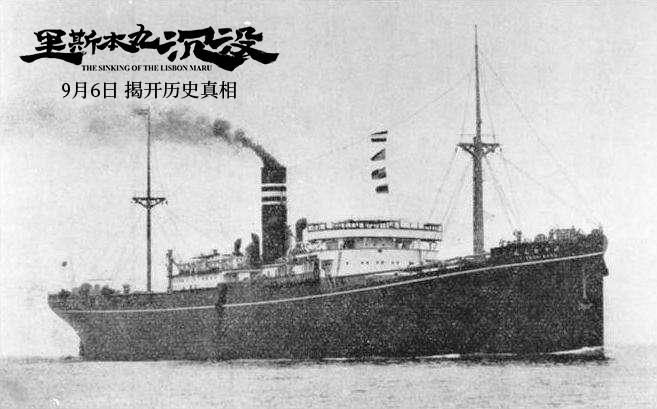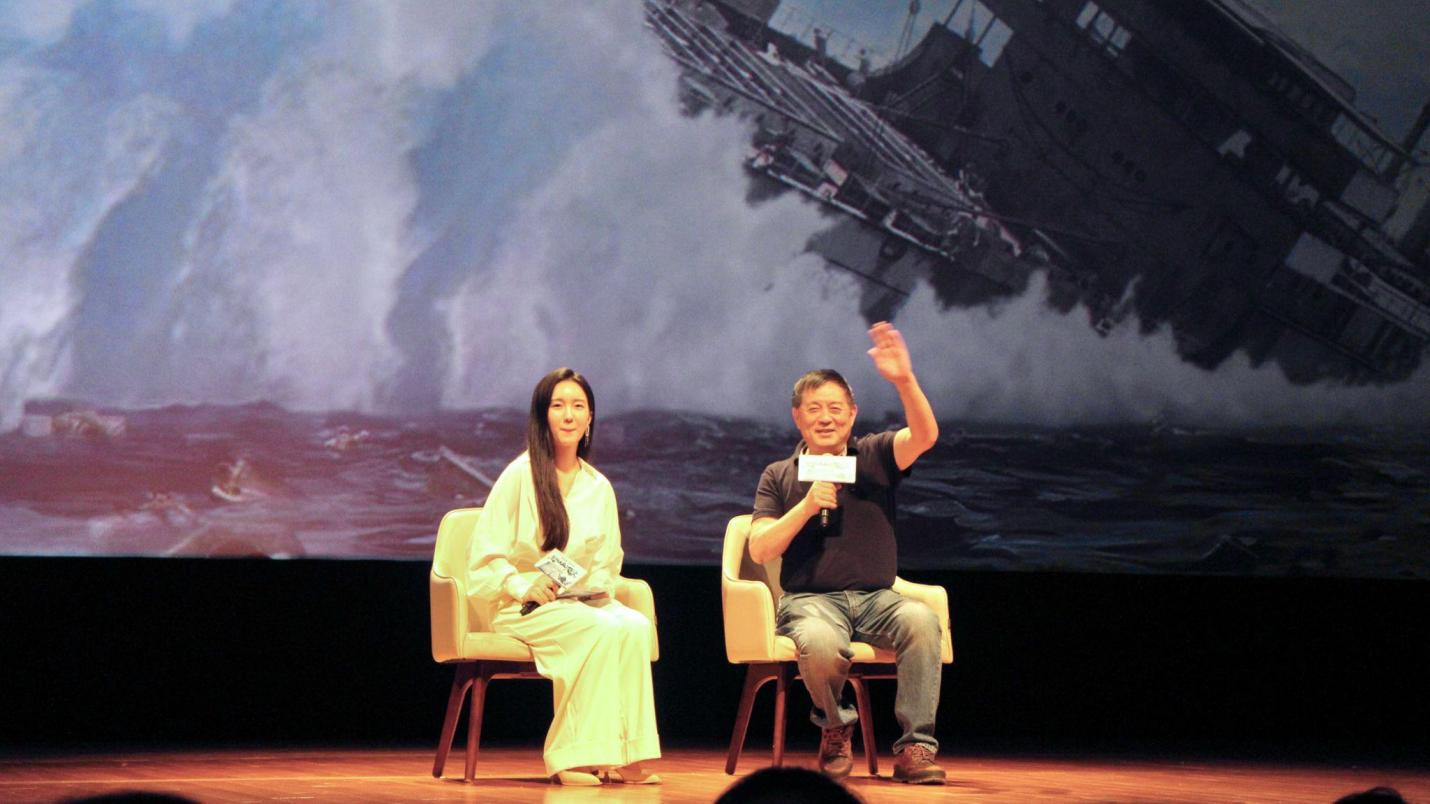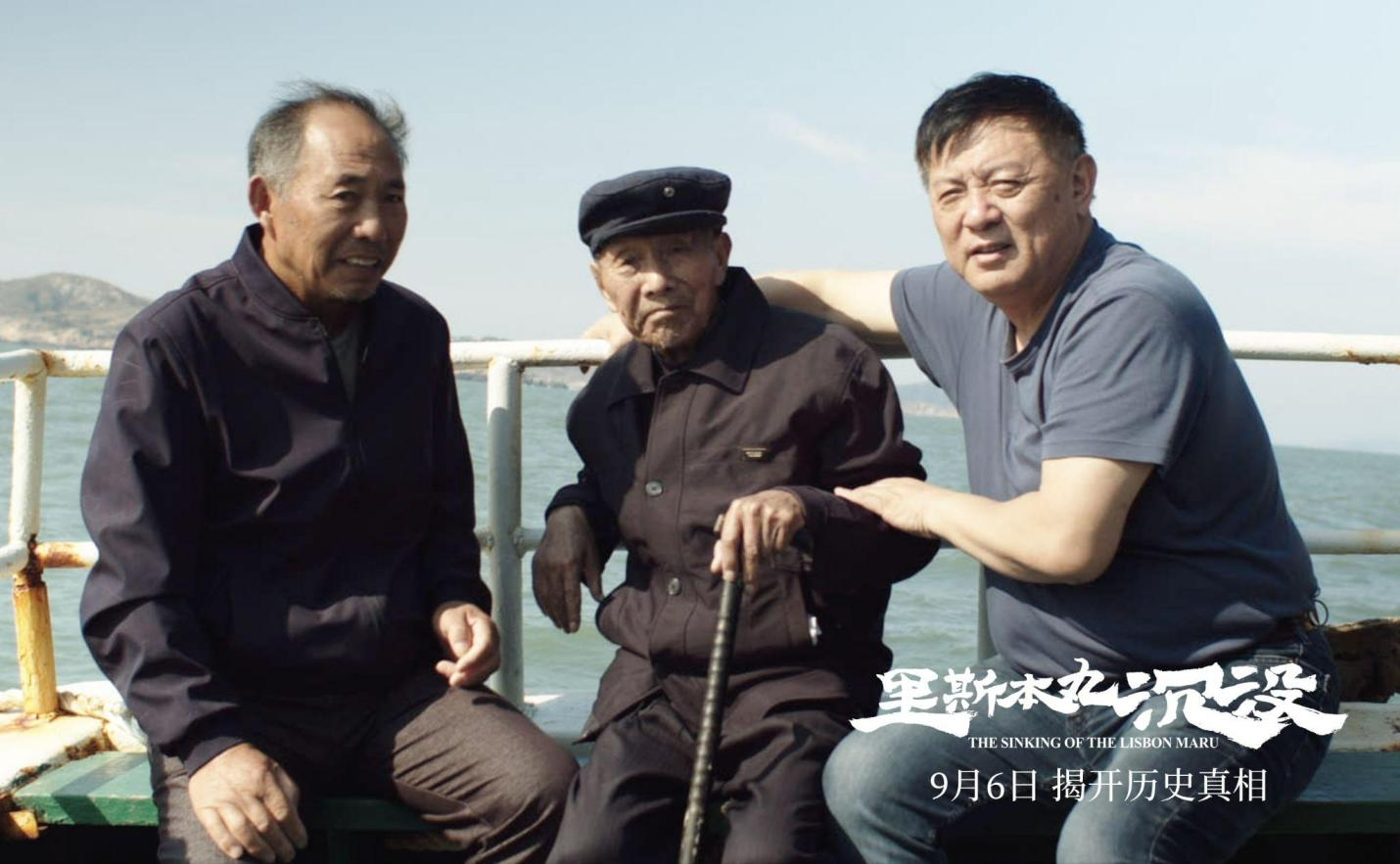The Sinking of the Lisbon Maru screening at PKU Hall on September 19, 2024.
Peking University, September 20, 2024: For 82 years, she slumbered in the waters near the Zhoushan Archipelago of China. Hers is a story like the Titanic– magnificent but tragic, with an ending that left families broken and questions unanswered.
Featuring exclusive interviews with survivors who have since passed on, Chinese documentary The Sinking of The Lisbon Maru sets out to uncover the truth behind the shipwreck of the Lisbon Maru, a Japanese troopship during World War II.
Days before the 82nd anniversary of the shipwreck, Chinese filmmaker and marine expert Fang Li presented his latest production to students and teachers of Peking University at the PKU Hall on September 19. In addition to producing this film, he and his team were the first to locate and identify the ship in 2017, solving a decades-long mystery.
Dubbed “Britain’s Forgotten Wartime Tragedy” in a 2006 book by historian Tony Banham, the story of the Lisbon Maru remained unknown to many. In street interviews conducted by the film’s production team, almost all Londoners said they had not heard of the Lisbon Maru.
The Lisbon Maru. (Photo courtesy of the production team)
In a torpedo strike by a US submarine, the Lisbon Maru went down on October 2, 1942, off the coast of Zhoushan Archipelago in China’s Zhejiang Province. On board were 1,816 British prisoners of war captured after the Battle of Hong Kong, alongside over 700 Japanese Army personnel.
According to historical records, POWs were kept in cargo holds below deck and lived in harsh conditions. They bore the brunt of the strike, and some eight hundred POWs were left to drown or shot to death by Japanese soldiers.
Fortunately enough, Chinese fishermen from Zhoushan came to the rescue of the remaining POWs, and saved 384 of them.
Fang Li (right) shared more about the filmmaking process post-screening.
I am but a chronicler: Director Fang Li
The Sinking of The Lisbon Maru is not mear tear-jerker as they call it, but sniffles filled the theater as survivors and their family members recounted horrifying wartime experiences onscreen. Historical events as they happen and raw emotions as they occur, were enough to bring the audience to tears.
The ship may have sunk, but the stories of the Englishmen contained in her cargo holds shall not. This is what 70-year-old Fang Li told himself. “I want the whole world to know that this happened right at our doorsteps. Our ancestors were witnesses, participants and rescuers of this history. The story has to be told by a Chinese person.”
When Fang Li took to the stage post-screening, he said to PKU students, “This is a story about wartime. It is first and foremost a historical account of everything that happened on the final voyage of the Lisbon Maru, before it leads up to the rescue mission by Zhoushan fishermen. I am but a chronicler of history.”
Lin Agen (center) is a Zhoushan fisherman who rescued British POWs from the Lisbon Maru. (Photo courtesy of the production team)
The rescue by Chinese fishermen: Abstracts from the movie (contains spoilers)
“It’s a long way to Tipperary, it’s a long way to go…” British POWs were heard singing this tune from World War I as the ship went down. Hopes of survival were at an all-time low, as Japanese soldiers fired at POWs that escaped from two out of three cargo holds, and the remaining POWs were quickly drowning in the third.
Miles away was the coast of Zhoushan Islands, where villagers resided. Dennis Morley, one of two survivors of the Lisbon Maru incident, recalled the moment he was pulled up onto the boat by a Chinese fisherman. “A man reached out his hand and said, Hello, I save you,” Morley described in the film.
“It was a peaceful day at sea.” This is what Lin Agen, the only living Chinese fishermen involved in the rescue, said of the day he spotted the British POWs stranded at sea. In small fishing boats known as sampans, Zhoushan fishermen transported the British POWs batch by batch, and provided them with clothing, shelter, food and water at the village.
As Fang Li put it, if the Chinese fishermen had not rescued the British POWs, and the Japanese army had not stopped firing at them, the death count of the Lisbon Maru incident would have doubled, exceeding that of the Titanic.
Written by: Wu Jiayun
Additional reporting by: Zhang Ying
Photos by: Zhang Ying (unless otherwise credited)
Edited by: Zhang Yang



